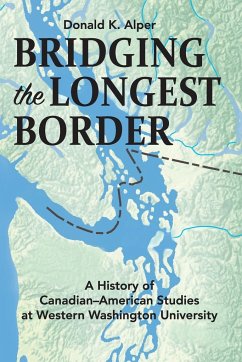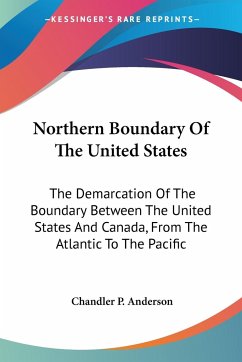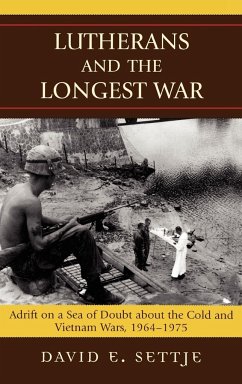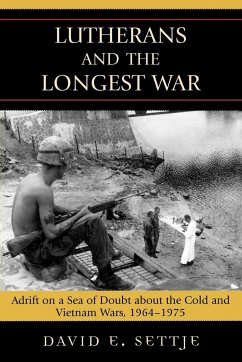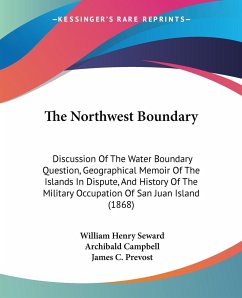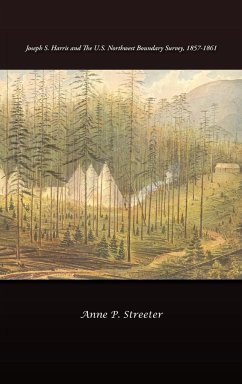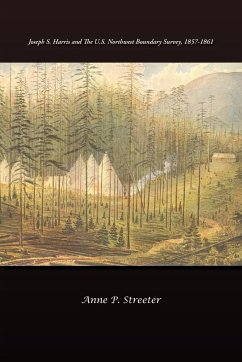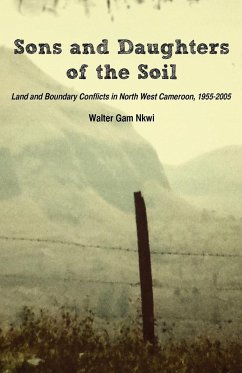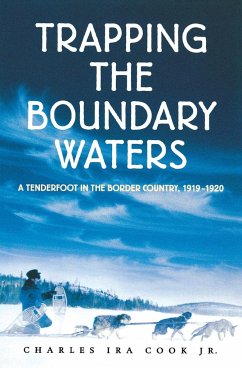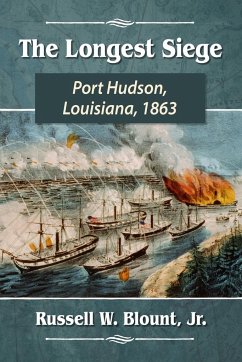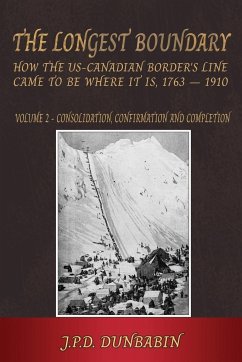
The Longest Boundary
Volume 2 - Consolidation, Confirmation and Completion
Versandkostenfrei!
Versandfertig in 1-2 Wochen
21,99 €
inkl. MwSt.

PAYBACK Punkte
11 °P sammeln!
As Volume 1 has shown, an agreed line between the US and British North America was by the mid-19th century in place across the continent. But it could only survive if the authorities and people to its north wanted to maintain it. Much of Volume 2's focus is accordingly more domestic: Canada's evolution, notably LaFontaine's determination (after the 1937 and 1838 'Patriote' rebellions) that French Canadian interests could best be protected by working with the Upper Canadian Reformer Baldwin to secure 'responsible government' within the political system; the 1867 Confederation of the main Britis...
As Volume 1 has shown, an agreed line between the US and British North America was by the mid-19th century in place across the continent. But it could only survive if the authorities and people to its north wanted to maintain it. Much of Volume 2's focus is accordingly more domestic: Canada's evolution, notably LaFontaine's determination (after the 1937 and 1838 'Patriote' rebellions) that French Canadian interests could best be protected by working with the Upper Canadian Reformer Baldwin to secure 'responsible government' within the political system; the 1867 Confederation of the main British North American provinces into a single Dominion, often defended as their only way of remaining both British and distinct from the US, and which in New Brunswick benefited from backlash against a projected Fenian incursion; the keeping of the West out of American hands, through the rapid creation in response to the 1858 Fraser Valley gold rush of the Colony of British Columbia and then, in 1869, the despatch of a new Governor to steer that Colony into Confederation; the complicated way in which Canada eventually came to buy the Prairies from the Hudson's Bay Company in 1869, only to have Métis keep its prospective Governor from entry; Louis Riel's establishment of a Provisional Government, and its negotiation next year of entry into Confederation as the province of Manitoba; the slower consolidation of Canadian control over these newly acquired areas, a process involving the creation of the iconic Northwest Mounted Police and Canadian Pacific Railway as well as the doomed attempt by Riel to repeat his 1869-70 achievements by again establishing a Provisional Government (now as the Prophet of a new religion) and negotiating with Canada. To these domestic themes, the book adds international ones arising out of Russia's unforced decision to sell Alaska to the United States in 1867, which led to disputes first over the US claim to ownership of the entire Bering Sea (to prevent 'pelagic sealing') and then over the Lynn Canal ports providing access to the Klondike goldfields. England's Chief Justice's substantial alignment with the American side of the 1903 Alaska Boundary Tribunal left Canada badly bruised, but once this feeling subsided resolution of that border question led on to settlement of many other Canada-US disputes, including the final boundary difference over Passamaquoddy Bay mudflats. Like Volume 1, this volume is firmly based on primary sources, but written in a way that should appeal to the general reader as much as to specialised historians. Its chief actors are politicians and administrators, but there is a range of others, extending from First Nations chiefs to goldminers, railway entrepreneurs, prophets, and policemen. In the concluding chapter the book's general historical approach is supplemented by assessment of the main perspectives of 'international relations theory'. Finally, attention is drawn to small anomalies created by the boundary line.





